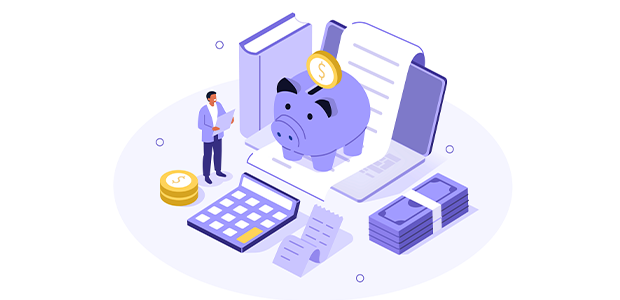
The finance blind spot costing entrepreneurs their future
Ask a founder about their business finances and you'll get burn rates, runway projections, and real-time dashboards. Ask about their personal finances? Crickets.
A survey we recently conducted with Ideas Community, home of the UK StartUp Awards, of 1,700+ UK entrepreneurs revealed something that really surprised me: four in five don't invest for their future. That's not a typo. 80% of entrepreneurs – the same people who negotiate every supplier contract down to the penny – have zero provision for their personal future.
And before you think these are just early-stage founders at the start of their business and financial journey, half our data came from established businesses averaging 6 years old with £2.26 billion combined turnover. Even among this group, only 33% have proper financial plans. For the rest, it’s vague intentions with minimal action.
Why 2025 is different
History often repeats itself. After every period of exuberant investment – and 2020/2021 was certainly that – failure rates spike. Companies that raised at crazy valuations can't hit the growth metrics for their next round. Granted, it’s not 2001 or 2008, but it is going to hurt.
The hard part, though, is that entrepreneurs have no safety net. Corporate workers get stability and large pension contributions. Freelancers and founders, especially in the UK, get nothing. We're potentially storing up a time bomb where entrepreneurs who don't get their "magic exit" end up in relative poverty later in life.
The psychology behind the madness
My personal take on the three reasons entrepreneurs ignore personal finance.
First, risk tolerance. You have to be slightly crazy to start a company when failure rates are 80%+. That mindset doesn't magically switch off for personal planning.
Second, passion-driven optimism. Entrepreneurs are massively passionate about their problems. Great for the business. But it causes reality blindness everywhere else.
Third, neurodiversity. Lots of entrepreneurs have ADHD traits. Hyperfocus is amazing – probably required – for a business to survive. But the dark side is that everything else gets ignored. The very thing that makes you function as an entrepreneur leaves your personal life in disarray.
The wealth management racket
What really gets me, though, is that people in financial advice are very good at moving money from your pocket to theirs. They make it sound complex so you outsource the problem.
The FT shows UK wealth advisers average 2-3% fully loaded. Sounds small? Goldman Sachs says the S&P 500 might deliver 3% nominal returns this decade. Do the maths – you could give 100% of your profits to your wealth manager. 3% growth, 3% fees. Sound fair?
They know what entrepreneurs value. Status. One founder told me when a big wealth manager called, he thought "wow – I've made it!" Others run entrepreneur networking events. Always ask: why are they doing this? If they're paying £2,500 per lead, they must think they'll make £10,000+ from you. As Charlie Munger said, show me the incentive and I'll show you the outcome.
Forget the exit fantasy
You're four times more likely to fail than exit. It’s not pessimistic to plan for failure; it's accepting that it’s a high probability.
I've seen what happens to failed entrepreneurs with no financial buffer. Mental health challenges. Falling off the rails. Lost friendships. Struggling to re-engage with society. Taking on catastrophic debt like I did aged 24, from which it can take a decade to recover.
You need financial resilience to maintain mental resilience to give your company its best shot. Stressing out about rent doesn't help your shareholders or your success probability.
What to actually do
The framework is the same as your business:
- P&L: monthly income and expenses
- Balance sheet: your net worth
- Cash flow forecast: what you'll have going forward
Track one metric every Monday: how much you're saving monthly. Short-term, it's your buffer if the company fails. Long-term, it's whether you can survive when you can't work anymore.
If you can’t bear to spend any time on this, you need to embrace defaults. Set up automatic payments into investments/pensions/savings. It takes 10 minutes now, then nothing. If you hate this sort of thing, book a financial planner. They'll radically change your perception of financial safety.
The bigger picture
Better financial planning means founders who can endure. Too many put themselves last, pay themselves nothing, then end up in a state. Sure, investors might pay more early on, but you get a more resilient founder base focused on learning not panicking. Better long-term outcome for UK plc.
Some very successful people will lose everything through financial illiteracy. How many rags to riches to rags stories are there? Lots. But it's the 80% who don't make money where the pain's most acute. The 80:20 here is failure not success. It matters.
We need founders applying their business rigour to their lives. Not after the exit that probably won't come. Now.
For more startup news, check out the other articles on the website, and subscribe to the magazine for free. Listen to The Cereal Entrepreneur podcast for more interviews with entrepreneurs and big-hitters in the startup ecosystem.

